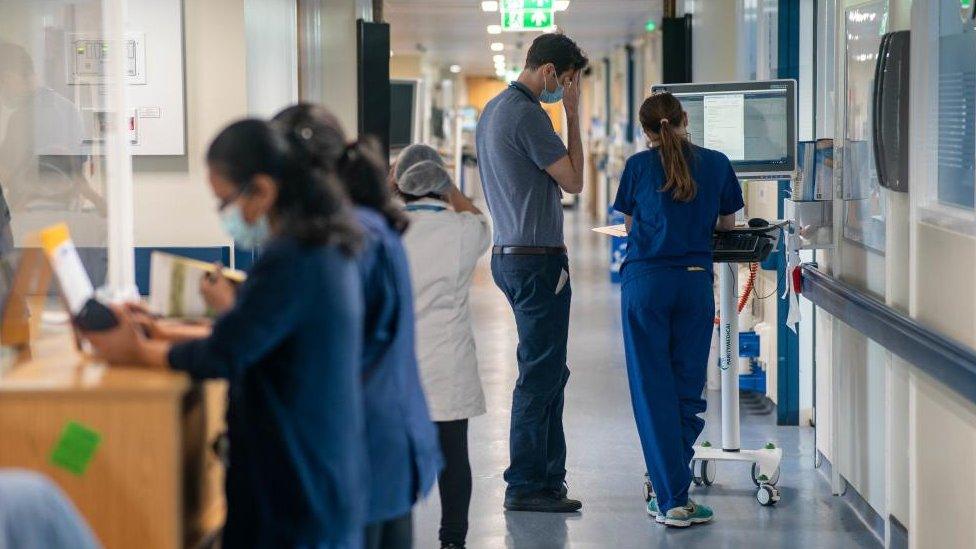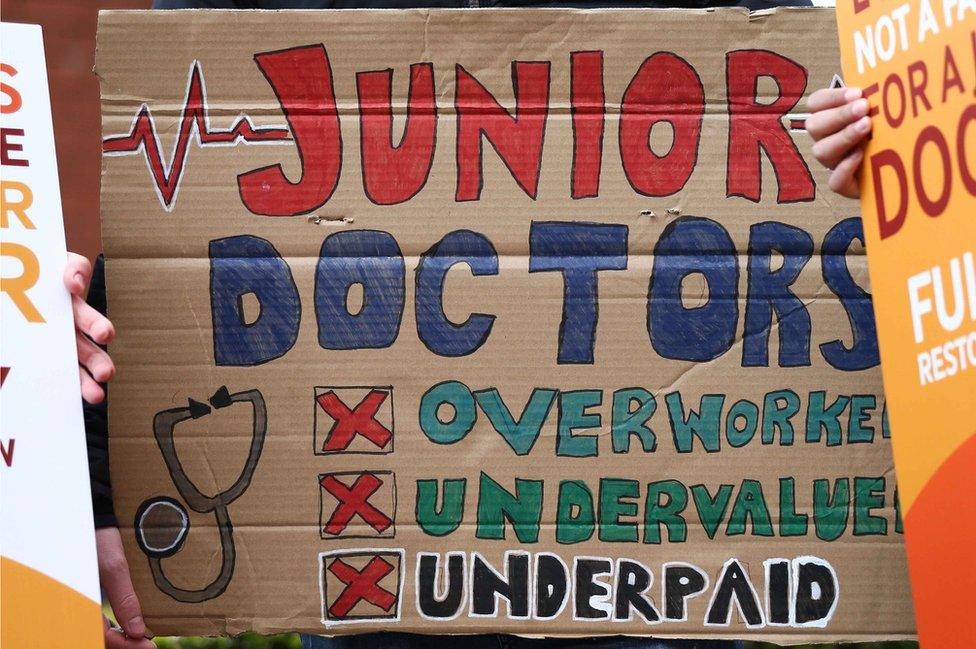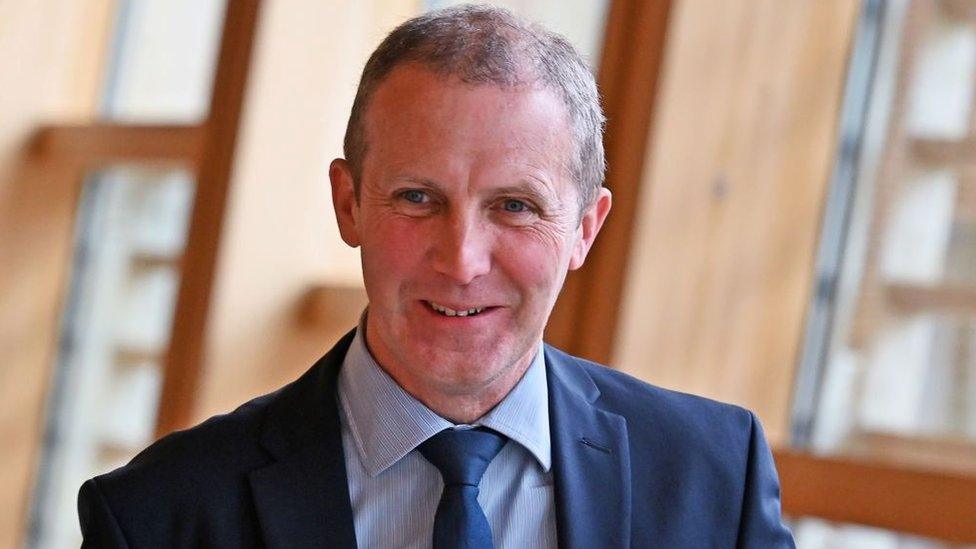Junior doctors in Scotland offered 14.5% pay rise
- Published
- comments

Junior doctors in Scotland have been offered a 14.5% pay rise.
The new offer from the Scottish government, which covers a two-year period, was made after negotiations with BMA Scotland.
The union will now consult its members, who voted in favour of strike action earlier this month, on the offer.
BMA Scotland stressed it had not agreed the improved deal - but said that it was likely to be the best that the Scottish government would offer.
Ministers said they were proposing a £61.3m investment in junior doctor pay, which they described as the largest in 20 years and the best offer in the UK.
The government said that if it was accepted, there would be a pay rise of 6.5% in 2023/24 and an additional 3% towards an already agreed 4.5% uplift in 2022/23.
This amounts to a cumulative increase of 14.5% over two years and matches the recent pay award accepted by nurses and other NHS workers in 2023, it said.
BMA Scotland members had previously voted in favour of staging a 72-hour walkout. The union has been calling for a 23.5% increase above inflation.
More than 71% of the eligible 5,000 junior doctors in Scotland voted in that ballot, with 97% in favour of industrial action.

Scotland's Health Secretary Michael Matheson said he was "delighted" to have reached an agreement with the BMA Scotland after weeks of intense negotiations.
He added: "We have taken their concerns regarding pay, and the need to modernise pay bargaining more broadly, extremely seriously.
"It's now up to junior doctors to reflect on this final offer, and I hope they will accept."
BMA Scotland said it would put the offer to its members in a consultative vote.
Dr Chris Smith, who chairs its Scottish junior doctor committee, stressed that the BMA had not agreed the deal or accepted any offer.
"However, the offer that has been made is without doubt an improvement on the 4.5% awarded last year, and the improved offer for 22/23 would represent a slowdown in doctors' pay erosion, which had accelerated up to this point after 15 years of real terms decline," he said.
"Our commitment to the long-term aim of righting that historical wrong remains firmly in place and will continue to be a top priority going forwards.
"We feel this offer reflects the best that the Scottish government will offer after this series of negotiations. This is why it is essential our members decide our next steps."

Michael Matheson said he hoped junior doctors would accept the offer
Junior doctors - fully-qualified medics who are not specialty staff doctors, consultants or GPs - make up 44% of the doctors in the NHS in Scotland.
Junior doctors in England walked out for three days in March and four days in April, leading to the cancellation of more than 196,000 hospital appointments last month.
In January, ambulance staff belonging to three unions - GMB, Unison and Unite - staged a strike in England and Wales in a dispute over pay.
Members of the Royal College of Nursing (RCN) union in England rejected the government's current pay offer and held a 24-hour strike, while a strike ballot opened last week for senior doctors in England amid a continuing dispute over pay.
Despite the action south of the border, Scotland has yet to see any strikes by NHS staff.